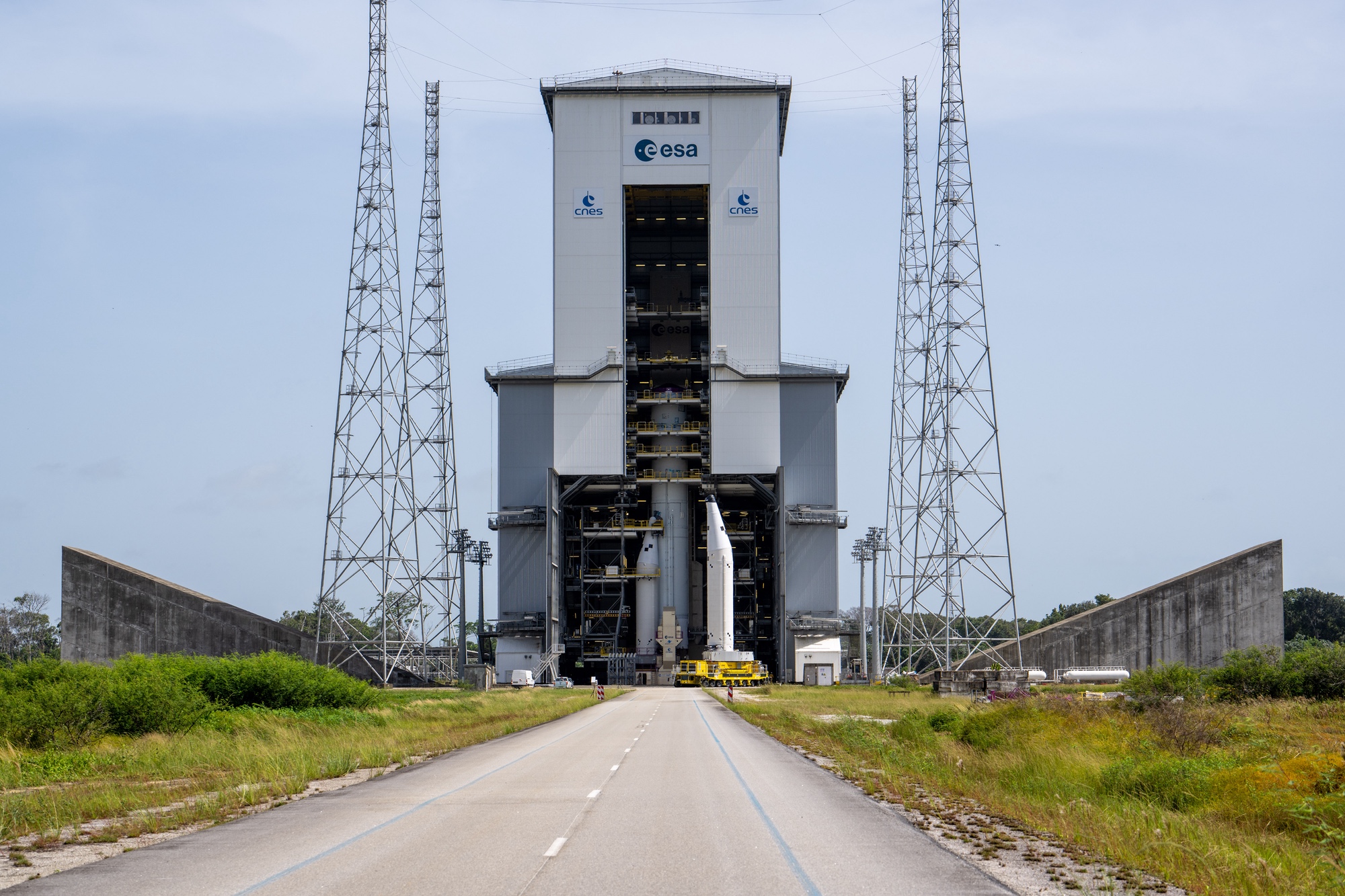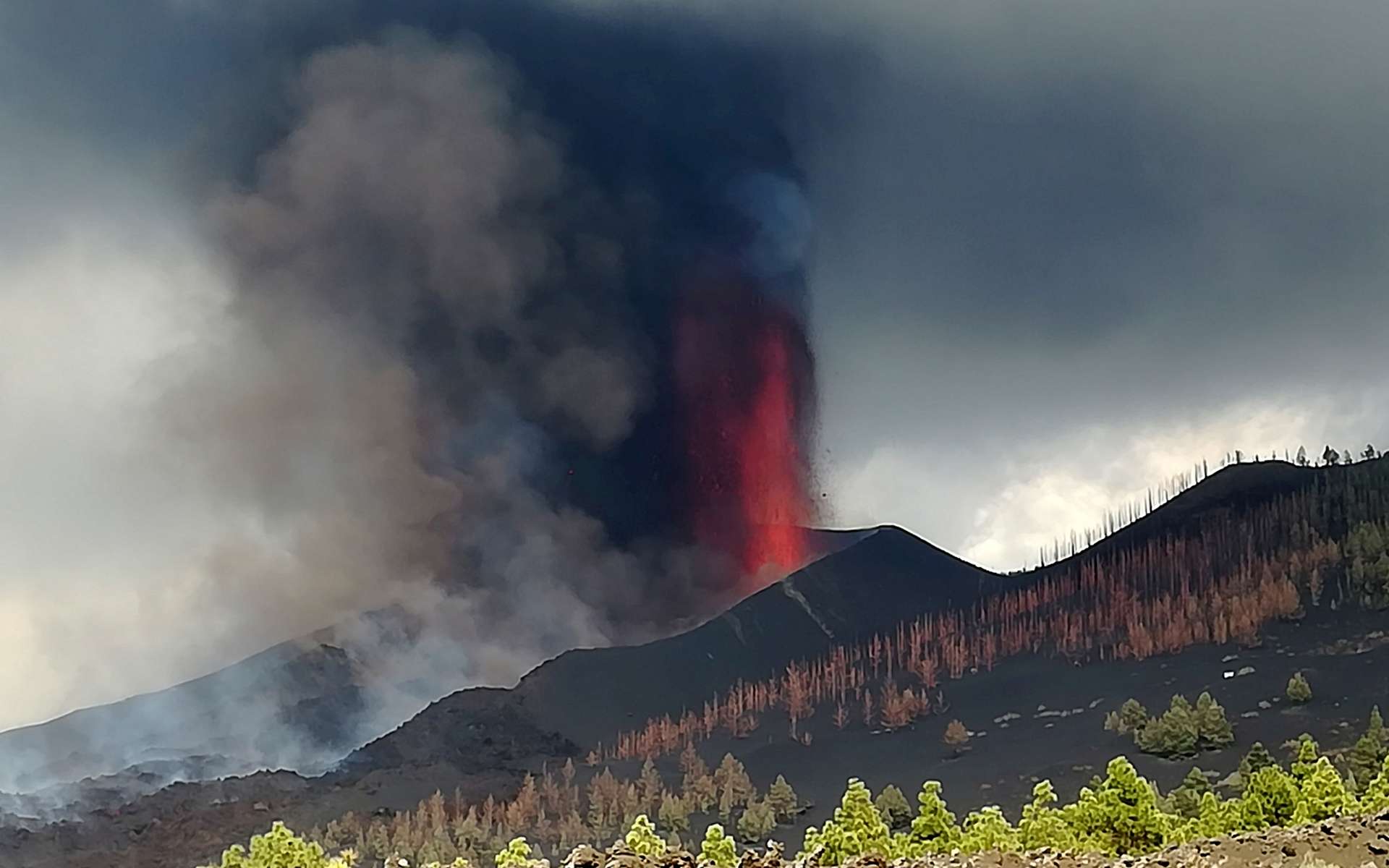Updated March 7 with ESA comments.
WASHINGTON — The Ukrainian government claims that European investigators were “premature” in concluding that a component from a Ukrainian company was the blame for the failed Vega C launch last December.
In a March 6 statementthe State Space Agency of Ukraine took issue with the findings of an investigation published by the European Space Agency three days earlierarguing that it “casts a shadow over the reputation of the space industry of Ukraine.”
That investigation into the failed Dec. 20 launch of the Vega C concluded that a component called a throat insert in the nozzle of the rocket’s second-stage Zefiro-40 motor eroded more than expected. That caused a drop in pressure and loss of thrust in the second stage that doomed the launch.
The throat insert, made of carbon-carbon material intended to withstand high temperatures, was produced by Ukrainian company Yuzhnoye. Testing of that material during the investigation found higher porosity not detected in earlier testing. That investigation concluded the Yuzhnoye component could no longer be used on the Zefiro-40, and Avio, the prime contractor for the Vega, announced it would instead use one produced by ArianeGroup.
The State Space Agency of Ukraine stated that it “believes that the presented conclusions remain to be premature and may still require further investigation to identify if there could be additional factors that led to the failure of Vega C.” It noted that the components supplied by Yuzhnoye “were completely compliant with the requirements imposed.”
At the March 3 briefing about the investigation, officials acknowledged the issue was with how the inserts were tested. “The acceptance criteria were not the right ones,” said Giovanni Colangelo, ESA inspector general and a co-chair of the independent investigation board. The issue was not seen in ground tests of the Zefiro-40, or on Vega C’s inaugural launch last July, because the components exceeded requirements, whereas the throat insert used on the failed launch was “exactly in line with specification,” he said.
“Ukrainian specialists who participated in a certain part of investigation which they were granted access to, provided their considerations and suggestions that objectively did not find reflection in the conclusions of the Independent Enquiry Commission,” the Ukrainian space agency stated.
It asked ESA and the companies involved “to perform additional analysis and considerations that would take into account other potential factors as well as suggestions diligently proposed by the Ukrainian experts.” It did not elaborate on the suggestions it said those Ukrainian experts offered.
It added that the findings of the investigation “unfortunately leaves no grounds for further discussions and casts a shadow over the reputation of the space industry of Ukraine.”
ESA Director General Josef Aschbacher said March 7 that the investigation was not meant to criticize Ukraine. “The conclusions that the committee found are not a means to place blame on Ukraine or on the integrity of the Ukrainian space industry, an industry that has been gaining much deserved clout in recent years,” he tweeted. “More than ever, ESA is determined to pursue its cooperation with Ukraine, and stands with the Ukrainian people.”
The space industry, like other sectors of the Ukrainian economy, has suffered significantly since Russia’s invasion more than a year ago. Factories have been targets of attack while supply chains have been disrupted.
“Even under conditions of the war the Ukrainian space industry continues to treasure its image of the reliable partner in the world space market and makes every effort to support it with timely delivery of the services and products of the high quality to our international partners,” the State Space Agency of Ukraine stated.
In the briefing, Giulio Ranzo, chief executive of Avio, said the problem with the throat insert was not linked to the war, since it was manufactured before the invasion. However, he suggested earlier production challenges linked to the pandemic could have been an issue.
The throat insert is not the only Ukrainian component on the Vega C. The rocket’s liquid-propellant AVUM upper stage uses an engine produced by Yuzhmash, and after the invasion European officials said they were working to stockpile the engine and consider alternatives if the supply of the engine was cut off.
However, Ranzo said Avio has not had any issues getting the AVUM engines. “During the war period, AVUM deliveries have continued as planned, so for this I can only thank the Ukrainian supplier for their commitment under a very, very difficult situation.”
Daniel Neuenschwander, ESA’s director of space transportation, said the agency was working to rely less on suppliers outside of the agency’s member states for Vega. “We have significantly increased the European content” on the rocket, finding European suppliers for components such as tanks and thrusters that had come from the United States and Russia. The goal, he said, was to “make a good European product based on European industrial suppliers.”
Note: This article have been indexed to our site. We do not claim legitimacy, ownership or copyright of any of the content above. To see the article at original source Click Here












:max_bytes(150000):strip_icc()/GettyImages-1396076957-28bdeebe5faf4a86a84094d2ead4822d.jpg)
